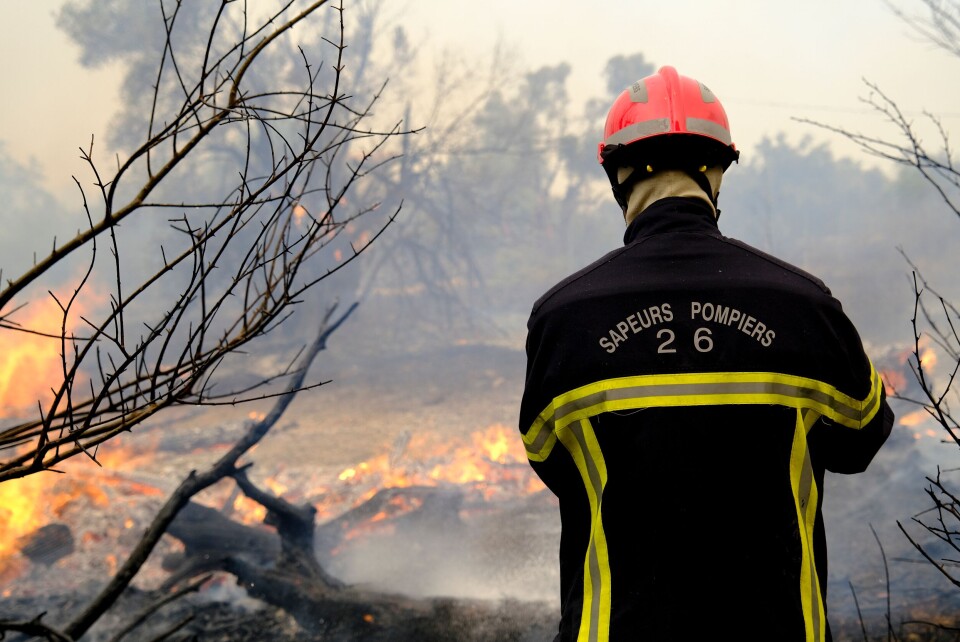-
More than 5,000 French communes use AI to identify poor rubbish sorting
Badly-sorted rubbish can cost millions so communes are turning to high-tech solutions
-
Tax on well-off retirees under consideration for 2026 budget
‘Nothing is off the table’ when it comes to finding €40 billion in savings says Labour Minister
-
Nice airport records passenger boom as tourists flock to city
Airport figures exceeded the pre-Covid record last year, with US visitors significant contributors
1,400 experts say French presidential candidates must address climate
A new open letter calls on them to stop the “discourse of inaction”, stating that voters have the right to know what measures they will take to tackle the crisis

More than 1,400 scientists, researchers and environmental experts in France have written an open letter calling for the 2022 presidential candidates to take action on the climate crisis, criticising the lack of debate so far.
The letter, published in FranceInfo yesterday (Tuesday, February 1) highlighted "the lack of democratic debate” on the climate crisis.
"Whatever our political opinions and personal commitments, we note with concern the lack of democratic debate in the presidential campaign on the serious upheavals underway and to come, whether they concern the climate, the ocean, biodiversity or pollution,” the letter states.
Some of the 1,402 signatories belong to the Intergovernmental Panel on Climate Change, and the French climate council, le Haut Conseil pour le climat.
Others are part of sustainable food and environmental research institute INRAE, and national scientific research centre le CNRS, and universities and institutes across the country.
They include scientists, climatologists, geographers, sociologists, philosophers, historians, oceanographers, astrophysicists, mathematicians and economists from all over France, across a range of scientific disciplines and political leanings.
The letter comes just over two months before the presidential election in France, with the first round of voting taking place on April 10.
Environment ‘major concern’ to people in France
The letter highlighted that in contrast to what some politicians may say to “justify this silence”, a recent survey by ecological agency Ademe found that “the environment is a major concern” for people living in France.
Temperatures have risen by 1.7C since 1900 in France, the signatories of the letter said.
The letter added that while the farming industry is taking note of its “major vulnerability faced with water cycle problems and extreme heat”, and that major companies are “developing climate policies”, politicians are “reducing the debate” to what is “comfortable”.
Yet, the letter said: “These simplifications end up creating an intellectual prison, which prevents us from putting the choices that are still open to us on the table, and debating them in a democratic way…a public, enlightened and contradictory way.”
‘Consequences of inaction’
The letter sought to show just how far-reaching the consequences of climate change could be.
It said: “The challenges ahead include reducing greenhouse gas emissions and preserving life. But they also concern the nature and pace of adaptation, a sharing of risk and effort, and solidarity between generations and areas.
“In fact, they concern employment, transport, food, the sharing of and access to resources - particularly drinking water - land, health, taxation, education, training, research and innovation, the preservation of historical and cultural heritage, housing, the reduction of inequalities and territorial fractures, the digital revolution, disaster prevention and compensation, internal security, national sovereignty and defence, and European and international policy.
"[But] if inaction is chosen, it will be necessary to bear the consequences."
Topics needing action
The letter called on the 2022 presidential candidates to focus on a number of questions, such as:
-
How to reduce greenhouse gas emissions by threefold by 2024, without increasing social and geographical inequalities
-
How to reduce our dependence on fossil fuels, without increasing energy insecurity
-
How to make environmental issues a key part of international trade agreements, to reduce our carbon footprint, imported deforestation, water and plastic consumption
-
How to transform the agricultural, industrial and tourism sectors to respond to the impacts of climate change, and the rising cost of raw materials
-
How to adapt cities to reduce their vulnerability to hot, dry and humid extremes, while fighting substandard housing and inadequate housing
-
How to prepare for more frequent and intense extreme climate events and crises
-
How to influence global climate and environmental protection policy, so the Paris Agreement really plays its role
-
How to ensure that the eradication of poverty in the world is combined with the adoption of sustainable development models and the emancipation of women
It said: “There is no miracle cure or totally painless panacea. Technological innovation and individual actions will not be enough in themselves.
“We can still lessen the crisis and be prepared to overcome the worst of it…It is more essential than ever to be able to peacefully debate alternatives, opportunities, and technical choices, and consider the geographical, social, and economic dimensions.
“For this reason, voters need to know what the presidential candidates will do and how they will implement it,” the signatories concluded.
A full list of signatories can be seen, along with the full letter in French, on the FranceInfo website here.
Related articles
COP26: What has France agreed at the climate summit?
How climate change will affect major cities in France by 2050
Online map shows which French cities may be submerged by sea in future
French eco-activist on climate change: 'We still have time'
























